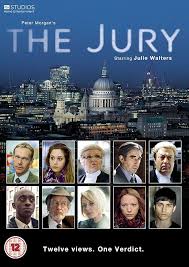The Role and Importance of the Jury in the Legal System

Introduction
The function of the jury is a cornerstone of the legal system in many democracies. As an essential mechanism for ensuring justice, juries serve as a critical bridge between the legal framework and public consciousness. In recent times, discussions surrounding the jury’s role have intensified, particularly in light of high-profile cases and evolving societal attitudes towards justice and fairness.
Understanding the Jury’s Function
A jury typically consists of a group of individuals selected to evaluate evidence in a trial and render a verdict. This system aims to reflect community values and offer a diverse perspective in legal decision-making. The principle of ‘trial by jury’ is rooted in the belief that justice should not only be administered by judges but also by ordinary citizens.
The jury’s role was underscored in the UK Supreme Court’s recent rulings that scrutinised the extent of juror involvement in complex fraud cases. Such decisions highlight the ongoing relevance of juries in maintaining the integrity of the judicial process, even as legal systems evolve to address contemporary challenges.
Recent Developments: Juries in High-Profile Trials
In the past year, we have witnessed several trials that reignited the debate surrounding jury impartiality and the influence of media coverage. Notably, the trial of high-profile celebrities amidst public scrutiny has raised questions about whether jurors can remain unbiased. The legal profession has seen increased calls for reform to ensure jurors receive proper guidelines on managing outside influences.
Additionally, the COVID-19 pandemic prompted adaptations in jury trials, including virtual participation and social distancing measures. Courts have had to balance public safety with the fundamental rights of defendants to a fair trial by jury, demonstrating the jury’s flexibility and importance in adapting to unforeseen circumstances.
Conclusion
The jury continues to play a critical role in the legal system, embodying societal values of fairness and community involvement. As discussions about its efficacy spark varying opinions, the significance of juries remains steadfast amidst changing societal dynamics. As we forecast for the future, it is crucial for legal reforms to both protect the jury’s integrity and adapt to contemporary challenges in order to uphold the ideals of a fair trial. Engaging with the jury system and understanding its impact on justice ensures that citizens remain informed and empowered to participate in legal proceedings.









